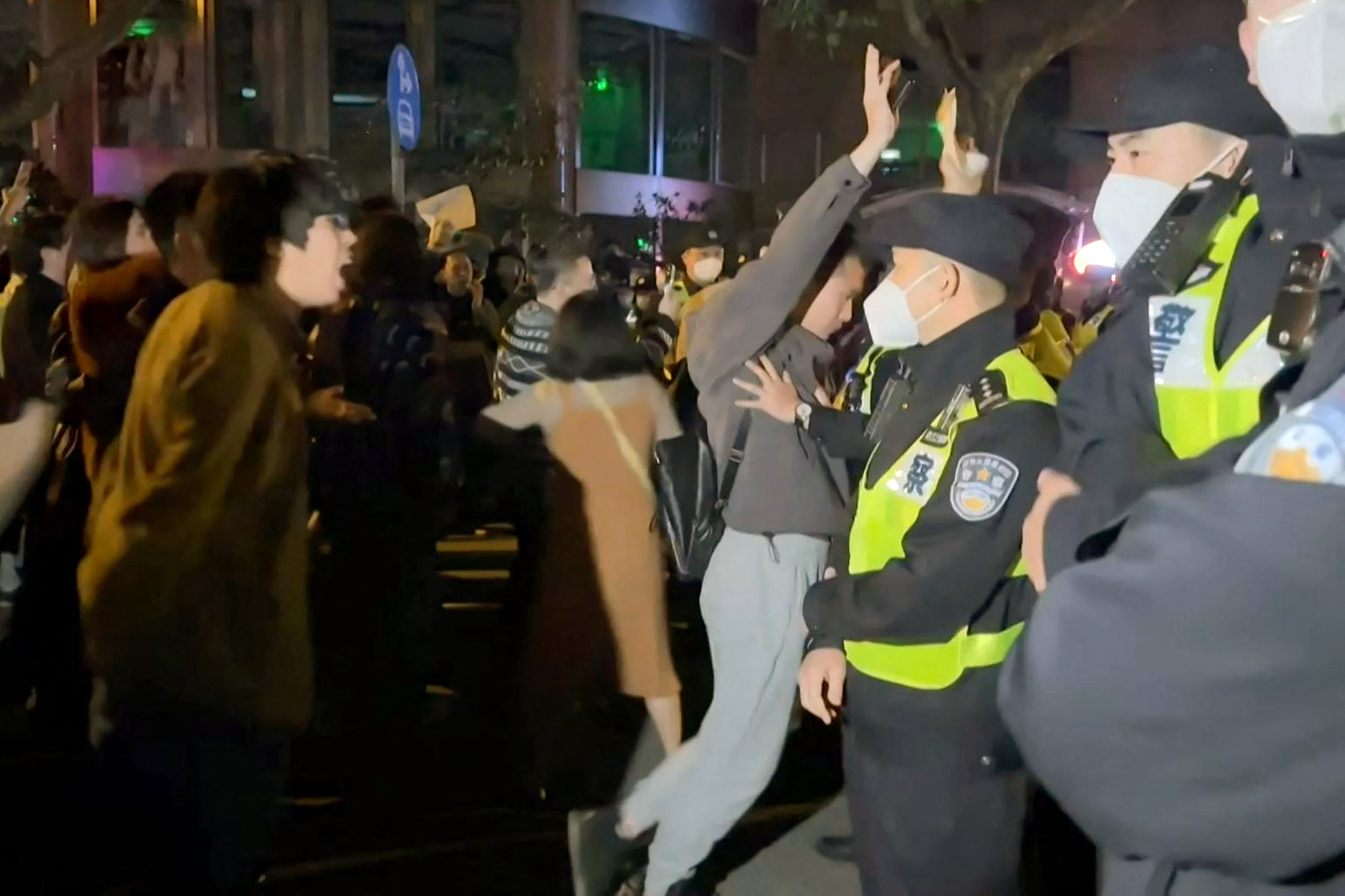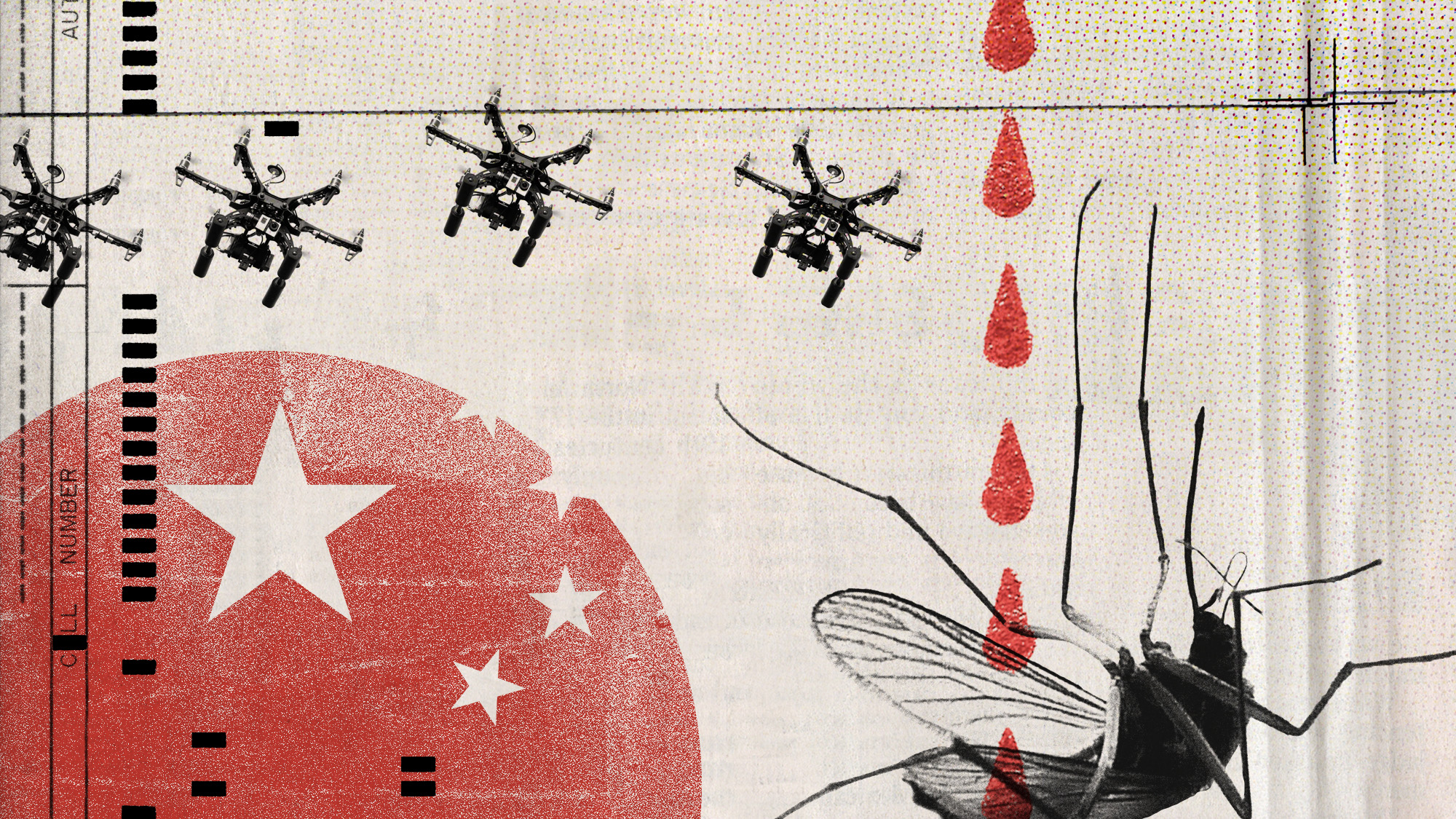Chinese protests over COVID lockdowns reach boiling point in Beijing, Shanghai


A free daily email with the biggest news stories of the day – and the best features from TheWeek.com
You are now subscribed
Your newsletter sign-up was successful
Mass protests continued in cities across China on Sunday in opposition to the country's strict COVID-19 lockdowns. The Washington Post reports protests erupted in Beijing, Shanghai, and other metropolises.
Tensions mounted last week following a deadly apartment fire in Urumqi, with The New York Times reporting at least 10 people died and nine more were injured. Many protesters blamed the deaths on China's COVID restrictions, which they say prevented people from leaving the apartment and also hampered the ability of rescue workers to reach those who were trapped.
The government, though, has pushed back against these assertions, further angering the protesters by claiming that the people in the apartment died because "their ability to rescue themselves was too weak."
The Week
Escape your echo chamber. Get the facts behind the news, plus analysis from multiple perspectives.

Sign up for The Week's Free Newsletters
From our morning news briefing to a weekly Good News Newsletter, get the best of The Week delivered directly to your inbox.
From our morning news briefing to a weekly Good News Newsletter, get the best of The Week delivered directly to your inbox.
As China continues to enforce its "zero-COVID" policy, residents in Shanghai were seen gathering in the streets and chanting for an end to the lockdowns, where the largest protests saw hundreds of people voicing their anger. In an unprecedented show of dissidence, some of the protests were even directed at Chinese President Xi Jinping himself, an almost never-seen occurrence in a country where opposition to Xi's authoritarian regime is heavily punished.
The Post reported that chants from the protesters included, "Xi Jinping, step down!" and "Communist Party, step down!"
While police officers eventually forced some protesters to disperse, it remains unlikely that Xi or any other Communist officials will relax the COVID-19 restrictions. The Communist Party's main newspaper has also called for Xi's policies to be upheld, per the Times.
A free daily email with the biggest news stories of the day – and the best features from TheWeek.com
Justin Klawans has worked as a staff writer at The Week since 2022. He began his career covering local news before joining Newsweek as a breaking news reporter, where he wrote about politics, national and global affairs, business, crime, sports, film, television and other news. Justin has also freelanced for outlets including Collider and United Press International.
-
 Political cartoons for February 16
Political cartoons for February 16Cartoons Monday’s political cartoons include President's Day, a valentine from the Epstein files, and more
-
 Regent Hong Kong: a tranquil haven with a prime waterfront spot
Regent Hong Kong: a tranquil haven with a prime waterfront spotThe Week Recommends The trendy hotel recently underwent an extensive two-year revamp
-
 The problem with diagnosing profound autism
The problem with diagnosing profound autismThe Explainer Experts are reconsidering the idea of autism as a spectrum, which could impact diagnoses and policy making for the condition
-
 A Nipah virus outbreak in India has brought back Covid-era surveillance
A Nipah virus outbreak in India has brought back Covid-era surveillanceUnder the radar The disease can spread through animals and humans
-
 Trump HHS slashes advised child vaccinations
Trump HHS slashes advised child vaccinationsSpeed Read In a widely condemned move, the CDC will now recommend that children get vaccinated against 11 communicable diseases, not 17
-
 Covid-19 mRNA vaccines could help fight cancer
Covid-19 mRNA vaccines could help fight cancerUnder the radar They boost the immune system
-
 FDA OKs generic abortion pill, riling the right
FDA OKs generic abortion pill, riling the rightSpeed Read The drug in question is a generic version of mifepristone, used to carry out two-thirds of US abortions
-
 The new Stratus Covid strain – and why it’s on the rise
The new Stratus Covid strain – and why it’s on the riseThe Explainer ‘No evidence’ new variant is more dangerous or that vaccines won’t work against it, say UK health experts
-
 RFK Jr. vaccine panel advises restricting MMRV shot
RFK Jr. vaccine panel advises restricting MMRV shotSpeed Read The committee voted to restrict access to a childhood vaccine against chickenpox
-
 Texas declares end to measles outbreak
Texas declares end to measles outbreakSpeed Read The vaccine-preventable disease is still spreading in neighboring states, Mexico and Canada
-
 How China is battling the chikungunya virus
How China is battling the chikungunya virusUnder The Radar Thousands of cases of the debilitating disease have been found in the country
